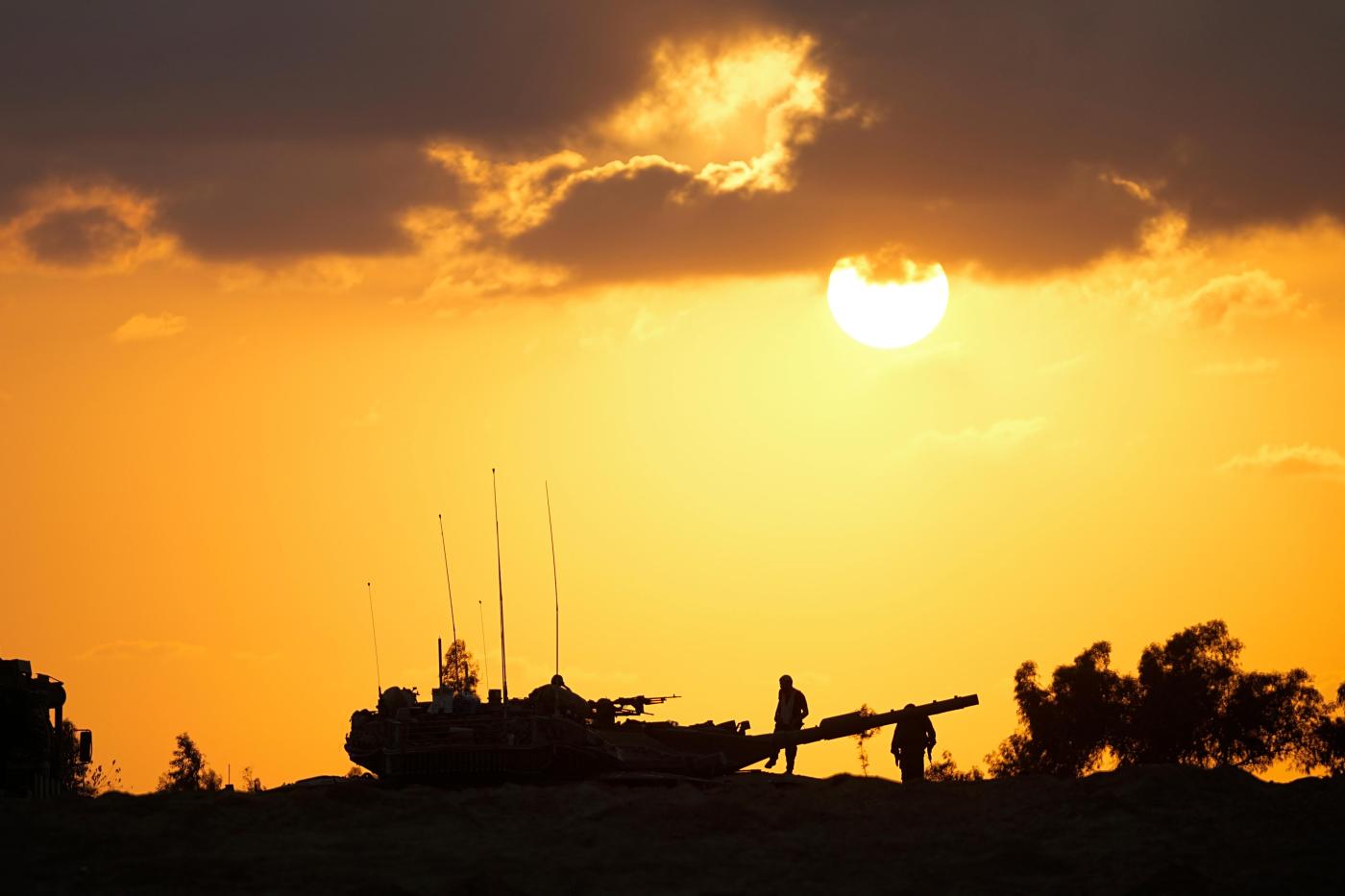
Thomas Friedman: What is happening to our world?
DUBAI, United Arab Emirates — I’ve been The New York Times’ foreign affairs columnist since 1995, and one of the most enduring lessons I’ve learned is that there are good seasons and bad seasons in this business, which are defined by the big choices made by the biggest players.
My first decade or so saw its share of bad choices — mainly around America’s response to 9/11 — but they were accompanied by a lot more hopeful ones: the birth of democracy in Russia and Eastern Europe, thanks to the choices of Mikhail Gorbachev. The Oslo peace process, thanks to the choices of Yitzhak Rabin and Yasser Arafat. China’s accelerating opening to the world, thanks to the choices of Deng Xiaoping. India’s embrace of globalization, thanks to choices initiated by Manmohan Singh. The expansion of the European Union, the election of America’s first Black president and the evolution of South Africa into a multiracial democracy focused on reconciliation rather than retribution — all the result of good choices from both leaders and led. There were even signs of a world finally beginning to take climate change seriously.
On balance, these choices nudged world politics toward a more positive trajectory — a feeling of more people being connected and able to realize their full potential peacefully. It was exciting to wake up each day and think about which one of these trends to get behind as a columnist.
For the past few years, though, I’ve felt the opposite — that so much of my work was decrying bad choices made by big players: Russian President Vladimir Putin’s tightening dictatorship and aggression, culminating in his brutal invasion of Ukraine; Xi Jinping’s reversal of China’s opening; Israel’s election of the most right-wing government in its history; the cascading effects of climate change; the loss of control over America’s southern border; and, maybe most ominously, an authoritarian drift, not only in European countries like Turkey, Poland and Hungary but in America’s own Republican Party as well.
To put it another way: If I think about the three pillars that have stabilized the world since I became a journalist in 1978 — a strong America committed to protecting a liberal global order with the help of healthy multilateral institutions like NATO, a steadily growing China always there to buoy the world economy, and mostly stable borders in Europe and the developing world — all three are being shaken by big choices by big players over the past decade. This is triggering a U.S.-China cold war, mass migrations from south to north and an America that has become more unreliable than indispensable.
But that’s not the half of it. Because now that advanced military technologies like drones are readily available, smaller players can wield much more power and project it more widely than ever before, enabling even their bad choices to shake the world. Just look at how shipping companies across the globe are having to reroute their traffic and pay higher insurance rates today because the Houthis, Yemeni tribesmen you never heard about until recently, have acquired drones and rockets and started disrupting sea traffic around the Red Sea and through the Suez Canal.
This is why I referred to Russia’s invasion of Ukraine as our first true world war and why I feel that Hamas’ war with Israel is in some ways our second true world war.
They are being fought on both physical battlefields and digital ones, with huge global reach and implications. Like farmers in Argentina who were stymied when they suddenly lost their fertilizer supplies from Ukraine and Russia. Like young TikTok users around the world observing, opining, protesting and boycotting global chains, such as Zara and McDonald’s, after being enraged by something they saw on a 15-second feed from the Gaza Strip. Like a pro-Israel hacker group claiming credit for shutting down some 70% of Iran’s gas stations the other day, presumably in retaliation for Iran’s support for Hamas. And so many more.
Indeed, in today’s tightly wired world, it is possible that the war over the Gaza Strip — which is roughly twice the size of Washington, D.C. — could decide the next president in Washington, D.C., as some young Democrats abandon President Joe Biden because of his support for Israel.
Good choices: Dubai
But before we become too pessimistic, let us remember that these choices are just that: choices.
There was nothing inevitable or foreordained about these choices. People and leaders always have agency — and as observers we must never fall prey to the cowardly and dishonest “well, they had no choice” crowd.
Gorbachev, Deng, Anwar Sadat, Menachem Begin, George H.W. Bush and Volodymyr Zelenskyy, to name but a few, faced excruciating choices, but they chose forks in the road that led to a safer and more prosperous world, at least for a time. Others, alas, have done the opposite.
It’s through this prism of choices that I want to reexamine the story that has consumed me, and I dare say much of the world, since Oct. 7: the Israel-Hamas war. It was not as inevitable as some want you to think.
I began thinking about this a few weeks ago, when I flew to Dubai to attend the United Nations climate summit. If you’ve never been there, the Dubai airport has some of the longest concourses in the world. And when my Emirates flight landed, we parked close to one end of the B concourse — so when I looked out the window I saw lined up in a perfectly symmetrical row some 15 Emirates long-haul passenger jets, stretching far into the distance. And the thought occurred to me: What is the essential ingredient that Dubai has and Gaza lacks? Because both began, in one sense, as the convergence of sand and seawater at crucial intersections of the world.
It’s not oil — oil plays only a small role in Dubai’s diversified economy today. And it’s not democracy. Dubai is not a democracy and does not aspire to be one. But people are flocking to live here now from all over the world — its population of more than 3.5 million has surged since the outbreak of COVID. Why? The short answer is visionary leadership.
Dubai has benefited from two generations of monarchs in the United Arab Emirates who had a powerful vision of how the UAE in general and the emirate of Dubai in particular could choose to be Arab, modern, pluralistic, globalized and embracing of a moderate interpretation of Islam. Their formula incorporates a radical openness to the world, an emphasis on free markets and education, a ban on extremist political Islam, relatively little corruption, a strong rule of law promulgated from the top down and a relentless commitment to economic diversification, talent recruitment and development.
There are a million things one could criticize about Dubai, from labor rights for the many foreign workers who run the place to real estate booms and busts, overbuilding and the lack of a truly free press or freedom of assembly, to name but a few. But the fact that Arabs and others keep wanting to live, work, play and start businesses here indicates that the leadership has converted its intensely hot promontory on the Persian Gulf into one of the world’s most prosperous crossroads for trade, tourism, transport, innovation, shipping and golf — with a skyline of skyscrapers, one over 2,700 feet high, that would be the envy of Hong Kong or Manhattan.
And it has all been done in the shadow (and with the envy) of a dangerous Islamic Republic of Iran. When I first visited Dubai in 1980, there were still traditional wooden fishing dhows in the harbor. Today, DP World, the Emirati logistics company, manages cargo logistics and port terminals all over the world. Any of Dubai’s neighbors — Kuwait, Qatar, Oman, Bahrain, Iran and Saudi Arabia — could have done the same with their similar coastlines, but it was the UAE that pulled it off by making the choices it made.
I toured the site of the U.N.’s global climate conference with the UAE’s minister of state for international cooperation, Reem al-Hashimy, who oversaw the building of Dubai’s massive 2020 Expo City, which was repurposed to hold the event. In three hours spent walking around, we were stopped at least six or seven times by young Emirati women in black robes in groups of two or three, who asked if I could just step aside for a second while they took selfies with Reem or whether I would be their photographer. She was their rock-star role model — this Harvard- and Tufts-educated, nonroyal woman in a leadership role of government contractor.
Bad choices: Hamas and Netanyahu
Compare that with Gaza, where the role models today are Hamas martyrs in its endless war with Israel.
Among the most ignorant and vile things that have been said about this Israel-Hamas war is that Hamas had no choice — that its wars with Israel culminating Oct. 7 with a murderous rampage, the kidnappings of Israelis as young as 10 months and as old as 86 and the rape of Israeli women could somehow be excused as a justifiable jailbreak by pent-up males.
No.
Hamas has never wavered from being more interested in destroying the Jewish state than in building a Palestinian state — because that goal of annihilating Israel is what has enabled Hamas to justify its hold on power indefinitely, even though Gaza has known only economic misery since Hamas seized control.
We do those Palestinians who truly want and deserve a state of their own no favors by pretending otherwise.
Palestinians in Gaza know the truth. Fresh polling data reported by AFP indicates that on the eve of Oct. 7, “many Gazans were hostile to Hamas ahead of the group’s brutal Oct. 7 attack on Israel, with some describing its rule as a second occupation.”
As Hamas’ grip over Gaza is loosened, I predict we will hear a lot more of these voices in Gaza on what they really think of Hamas, and it will be embarrassing to Hamas’ apologists on U.S. campuses.
But our story about agency and choices does not stop there. Benjamin Netanyahu, Israel’s longest-serving prime minister — 16 years — also made choices. And even before this war, he made terrible ones — for Israel and for Jews all over the world.
The list is long: Before this war, Netanyahu actively worked to keep the Palestinians divided and weak by strengthening Hamas in Gaza with billions of dollars from Qatar, while simultaneously working to discredit and delegitimize the more moderate Palestinian Authority in Ramallah, committed to Oslo and nonviolence in the West Bank. That way Netanyahu could tell every U.S. president, in effect: I’d love to make peace with the Palestinians, but they are divided, and moreover, the best of them can’t control the West Bank, and the worst of them control Gaza. So what do you want from me?
Netanyahu’s goal has always been to destroy the Oslo option once and for all. In that, Bibi and Hamas have always needed each other: Bibi to tell the U.S. and Israelis that he had no choice, and Hamas to tell Palestinians in Gaza and its new and naive supporters around the world that the Palestinians’ only choice was armed struggle led by Hamas.
The only exit from this mutually assured destruction is to bring in some transformed version of the Palestinian Authority in the West Bank — or a whole new PLO-appointed government of Palestinian technocrats — in partnership with moderate Arab states like Egypt, Jordan and Saudi Arabia. But when I raise that with many Israelis right now, they tell me, “Tom, it’s not the time. No one wants to hear it.”
That makes me want to scream: No, it is exactly the time. Don’t they get it? Netanyahu’s greatest political achievement has been to convince Israelis and the world that it’s never the right time to talk about the morally corrosive occupation and how to help build a credible Palestinian partner to take it off Israel’s hands.
In sum, this war is so ugly, deadly and painful, it is no wonder that so many Palestinians and Israelis want to just focus on survival and not on any of the choices that got them here. Haaretz writer Dahlia Scheindlin put it beautifully in a recent essay:
“The situation today is so terrible that people run from reality as they run from rockets — and hide in the shelter of their blind spots. It’s pointless to wag fingers. The only thing left to do is try and change that reality.”
For me, choosing that path will always be in season.
Thomas Friedman, who was born in Minneapolis and raised in St. Louis Park, writes a column for the New York Times.


